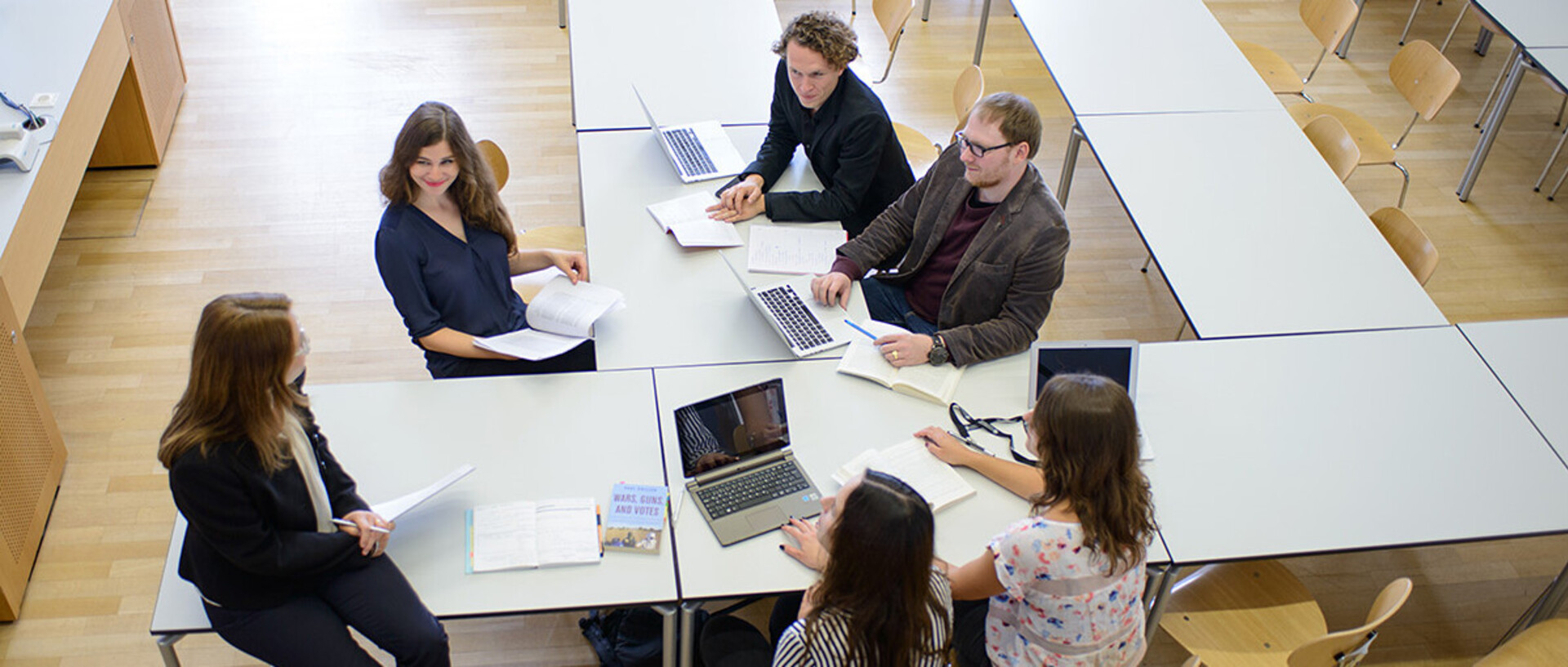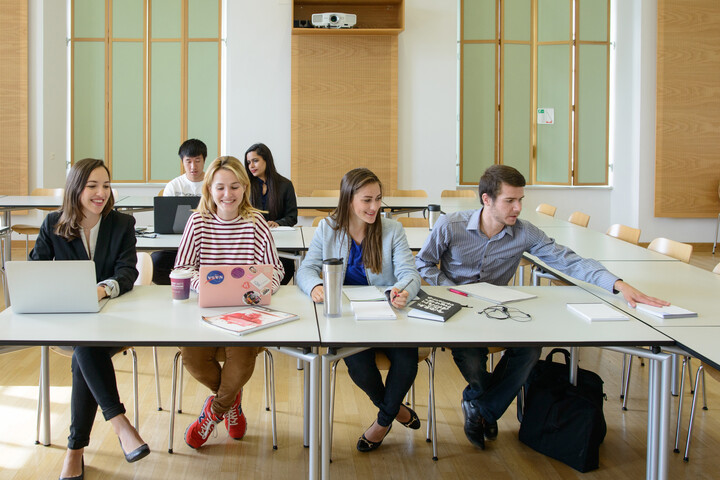Educational Innovation Projects
The Center of Teacher Education and Educational Innovation (ZLBI) supports, evaluates, and initiates various projects and collaborations in the field of Educational Innovation. One of our goals is to develop innovative project and teaching formats for the university. Real-life challenges become the starting point for new research approaches and formats. Below you will find an overview of current and already completed projects:
Completed projects
HAREBE / Re² project
HA = Handlungswissen (practical knowledge)
RE = Reflexion (reflection)
BE = Berufsorientierung in der universitären Lehre (career orientation in university teaching)The HAREBE project introduces problem- and practice-oriented teaching-learning formats to five subprojects of different subjects, where the methodological core components are transferable.
The subjects are:
- Clinical Psychology
- Mathematics
- Business Administration/
Management - History
- Law
What the projects have in common is that they are designed to specifically promote practical knowledge and the ability to reflect. They all address key job-related challenges.
The various HAREBE projects incorporate and/
or develop service learning approaches in different forms. They choose a problem- and research-oriented learning approach and, despite the broad range of subjects across all schools of the University of Mannheim, have something fundamental in common: The chosen teaching-learning models make it possible to learn in and with society. A central control project evaluates the subprojects on the basis of the common criteria and supports them in interdisciplinary networking.
What the projects have in common that they are designed to specifically promote practical knowledge and the ability to reflect. They all address key job-related challenges.
The various HAREBE projects incorporate and/
or develop service-learning approaches in different forms. They choose a problem- and research-oriented learning approach and, despite the broad range of subjects across all schools of the University of Mannheim, have something fundamental in common: The chosen teaching-learning models make it possible to learn in and with society. A central control project evaluates the subprojects on the basis of the common criteria and supports them in interdisciplinary networking.
Follow-up project RE²
In the follow-up project RE², five (sub-)projects realize learning on authentic problems with a high practical and professional relevance in innovative teaching-learning formats, and cooperate with non-university partners (service learning, campus community partnerships).
The theory-practice-reflection as a learning-effective element is the focus of all projects. A control project accompanies and evaluates the teaching formats academically and supports the transfer throughout the university.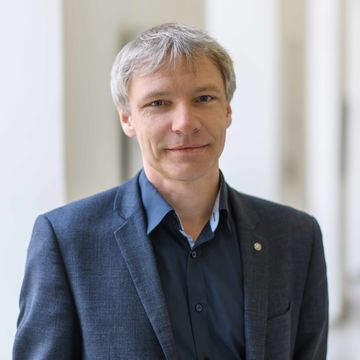 Credit: Anna Logue
Credit: Anna LogueProf. Dr. Stefan Münzer
Professorship of Education PsychologyUniversity of Mannheim
School of Social Sciences
A 5, 6
Building B – Room B 206
68159 MannheimPhone: +49 621 181-2221
E-mail: stefan.muenzeruni-mannheim.de
Web: www.sowi.uni-mannheim.de/en/muenzerConsultation hour(s):
By appointement. Please contact us:
bildungspsychologieuni-mannheim.deDigital Teaching beyond Corona
The aim of the working group is to thoroughly evaluate knowledge, experiences and methods from the “pandemic semesters” and to transfer promising findings to the time after the coronavirus pandemic. This evaluation process includes, among other things, two surveys (first survey among students at the University of Mannheim in the fall semester 2020/
2021, second survey among students and lecturers at the University of Mannheim planned for summer 2022), and the production of a joint position paper describing quality criteria and case studies of good digital teaching. You can find the processed results of the first student survey here (PDF).
Head of the working group was Professor Dr. Stefan Münzer, who served as spokesman for the ZLBI. The ZLBI coordinated and supervised the work process.
VESPER project
VESPER
VE = Verbesserung der (improvement of)
SP = Sprachkompetenz durch den (language skills through)
E = Einsatz (use of)
R = Reziproker Lehre (reciprocal teaching)The VESPER project, a collaborative project between the University of Mannheim and the Institut für Bildungsanalysen Baden-Württemberg (IBBW), analyzes the development of reading skills among pupils in fifth grade. A cooperative reading strategy training is introduced and used. The learning effectiveness of the strategy training is reviewed. This research project is carried out within the framework of the educational partnership with schools in Mannheim.
Service-learning
A part of VESPER was the two-semester project seminar in the service-learning format Psychology in Teaching – Dealing with Heterogeneity Professionally with students of the master's program in Psychology (M.Sc.).
The students designed and implemented a school-specific training course for the German teachers participating in the VESPER project (as well as other interested teachers) together with employees of the working group for quality of instruction in heterogeneous contexts.
Another element of the VESPER research project is the annual service-learning seminar on diagnostics in teaching in the master's program in Teacher Education (M.Ed.). In addition to the classes of the regularly participating cooperating schools in Mannheim, all other classes from the VESPER project will also be tested during the duration of VESPER (a total of 27 classes).
Campus-Community Partnership
Within the framework of the campus-community partnership approach, employees of the university, participating and interested schools (usually represented by the school management), the Department of Education of the City of Mannheim, and the Institut für Bildungsanalysen Baden-Württemberg (IBBW) are involved. An exchange of participants takes place, for example, in moderated workshop meetings.
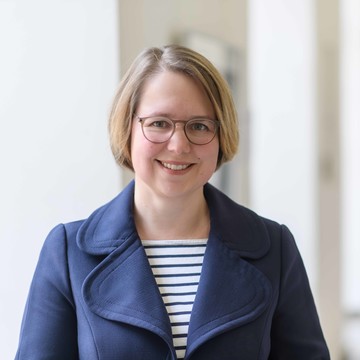 Credit: Anna Logue
Credit: Anna LogueProf. Dr. Karina Karst
Apl. ProfessorshipUniversity of Mannheim
School of Social Sciences
A 5, 6
Building B – Room B 242
68159 MannheimConsultation hour(s):
Mi (nach Vereinbarung)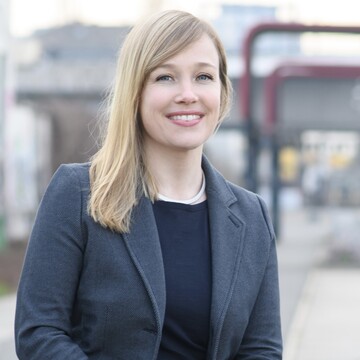 Credit: Katrin Glückler
Credit: Katrin GlücklerJulia Derkau
Head of Educational Innovation and Project Lead TransforMAUniversity of Mannheim
Center for Teacher Education and Educational Innovation
Schloss – Room EO 084
68161 MannheimLighthouse project: Multilingual classroom
The project Competently Teaching and Learning in a Multilingual Classroom: Interlinking Subject-Specific Teaching Methodology and School Practice in Teacher Education is headed by Professor Dr. Rosemarie Tracy and Dr. Dieter Thoma from the Chair of English Linguistics. The aim is to optimally prepare future teachers for pupils with different first languages.
In order to achieve this competence-oriented goal, future teachers need to know how humans learn, process, and use languages. They need to acquire the ability to translate this knowledge into teaching and learning concepts, and they need to be able to apply this knowledge and skill in practical teaching.
In addition, students should develop a mindset that enables them to consider linguistic and cultural diversity as both a challenge and a potential for teaching practice. The promotion of language skills thus becomes a cross-disciplinary task (as in the related project: Challenge of Heterogeneity).
Knowledge – Ability – Action
To ensure that this competence-oriented first goal is achieved, the project pursues a structural second goal: Connecting subject-specific knowledge (knowledge), teaching methodology (ability) and practical school studies (action) in teaching and research in a sustainable manner.
A third goal is to make Teacher Education in Mannheim even more attractive for highly motivated, interested and successful students with the profile topic of linguistic and cultural heterogeneity .
Term and funding: EUR 995,000 in the period from 5 Januar 2021 until 14 January 2022. Funded by the Ministry of Science, Research and Arts Baden-Württemberg.
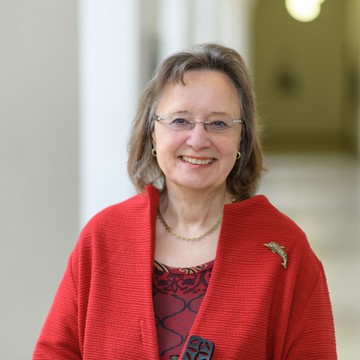 Credit: Anna Logue
Credit: Anna LogueProf. Dr. Rosemarie Tracy
Senior ProfessorUniversity of Mannheim
Anglistik I
B6 30-32 – Room 38
68159 MannheimE-mail: rosemarie.tracyuni-mannheim.deConsultation hour(s):
By appointment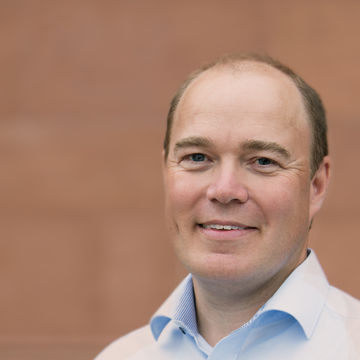
PD Dr. Dieter Thoma
Senior Researcher and Lecturer with TenureUniversity of Mannheim
Anglistik I
Schloss – Room EW 293
68161 MannheimConsultation hour(s):
Tue 2–3 p.m. Please send an email for individual appointments.Lighthouse project: Heterogeneity
Challenge of Heterogeneity: Combining theory and practice for evidence-based and practice-oriented professionalization of (future) teachers at secondary and vocational schools.
The project aims to prepare future teachers for dealing with increasing heterogeneity in the classroom. Taking into account the different circumstances and abilities of pupils is a crucial component in the professional work of teachers.
Together with cooperating secondary schools, the University of Mannheim has set itself the goal of meeting the challenges of heterogeneity in a practical, problem-oriented and research-based manner. In collaboration with the cooperating schools, future teachers gain practice-oriented, structured learning experiences.
At the same time, scientifically supported school and teaching development processes evolve. The project links practice-relevant learning, teaching development and accompanying research in teacher education, and thus connects central learning and development areas. The project is headed by Dr. Stefan Münzer, Professor in the field of Educational Psychology, and Dr. Jürgen Seifried, Professor of Economic and Business Education.
Term and funding: EUR 998,575 in the period from 15 January 2016 to 14 January 2021. Funded by the Ministry of Science, Research and Arts Baden-Württemberg.
 Credit: Anna Logue
Credit: Anna LogueProf. Dr. Stefan Münzer
Professorship of Education PsychologyUniversity of Mannheim
School of Social Sciences
A 5, 6
Building B – Room B 206
68159 MannheimPhone: +49 621 181-2221
E-mail: stefan.muenzeruni-mannheim.de
Web: www.sowi.uni-mannheim.de/en/muenzerConsultation hour(s):
By appointement. Please contact us:
bildungspsychologieuni-mannheim.de Credit: Anna Logue
Credit: Anna LogueProf. Dr. Karina Karst
Apl. ProfessorshipUniversity of Mannheim
School of Social Sciences
A 5, 6
Building B – Room B 242
68159 MannheimConsultation hour(s):
Mi (nach Vereinbarung)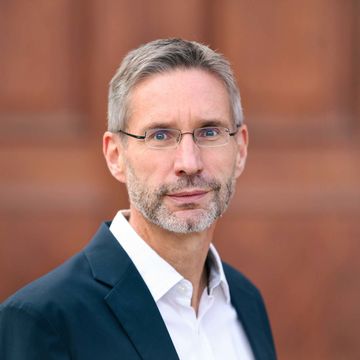 Credit: Katrin Glueckler
Credit: Katrin GluecklerProf. Dr. Jürgen Seifried
Chair of Economic and Business Education – Professional Teaching and LearningUniversity of Mannheim
L 4, 1
L4, 1 – Room 304
68161 Mannheim
Contact

Julia Derkau
Center for Teacher Education and Educational Innovation
Schloss – Room EO 084
68161 Mannheim
